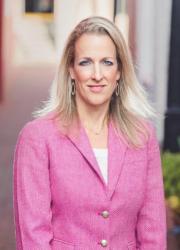This weekend, Americans will celebrate Labor Day and the unofficial close of summer with barbecues, parades, and a few extra lazy days before the onset of fall. This year happens to mark the 130th official Labor Day holiday, signed into law by President Grover Cleveland in 1894. The first informal Labor Day was celebrated in 1882 in New York City; by 1894, 23 states had already adopted the holiday.
Labor Day has its roots in 19th-century labor unions born out of the Industrial Revolution, which transformed American economic life. It did this most significantly through the increase in worker productivity, which allowed Americans to leave farms and enter factories. This new way of living, and of making a living, was fueled by an explosion of innovation, machines, and new technologies, resulting in urbanization, economic growth, and prosperity.
Industrialization was an admittedly long and messy process. Economic historians estimate that in the late 19th century, Americans worked six days a week, between 60 and 70 seventy hours per week in the manufacturing sector, and in conditions that we cannot fathom today. There were violent clashes, strikes, protests, and mounting political pressure for increased pay, reduced hours, and improved working conditions. Yet average annual working hours were already declining by 1870. Economic growth powered by increasing productivity is essential in reducing work hours, improving work conditions, and raising living standards. And this requires free markets and free trade. Richer countries, like the United States today, can produce more per work hour, earning Americans higher wages and better living standards, thus enabling them to choose to work fewer hours.
Increased income gives us choices and allows us to pursue our passions rather than being stuck in grinding, subsistence agricultural work. Yet work is good. Christianity provides a spiritual and dignified understanding of work and vocation. Theologian Gene Veith argues that Martin Luther transformed the doctrine of vocation to apply to all of Christian life; it is the “mask of God” in which he is present in our ordinary affairs. Veith contends that “the priesthood of all believers is another name for the concept of vocation. … God calls some Christians to be pastors, but … other Christians will ‘exercise their royal priesthood by plowing fields, forging steel, and starting businesses.’” A culture that honors hard work, creativity, and service informs the institutional transformation necessary for economic development.
Everyone has a vocation, but not all have jobs. Paid labor can be a part of how you fulfill your vocation, but it’s not the only way. When politicians speak about the importance of jobs, they refer to the labor you sell in the marketplace. A robust economy creates job opportunities across various skills and education levels, from aeronautics to manufacturing. Meaningful work, not just jobs, can happen inside the market where we buy and sell our labor and outside the market in our homes, neighborhoods, churches, and civic institutions; it all matters.
Productive work is good and part of our God-given purpose. A growing economy encourages people to cultivate their skills and talents in the service of others. We want an economy that fosters job creation but not any job at any cost; we must create value for others.
Despite 200 years of explosive economic development and about the same amount of time studying and understanding the causes of growth, myths nevertheless abound. Adam Smith’s seminal work An Inquiry into the Nature and Causes of the Wealth of Nations was published in 1776, when the Industrial Revolution was in its infancy and when almost everyone lived in grinding poverty. The book provided a crucial insight into understanding productivity growth to explain why some nations were managing to grow richer. Smith noted that, when we divide labor among people, we can specialize, and specialization is the key to innovation. The extent of the market limits the division of labor; thus, we benefit when we widen the circles of exchange. In other words, the more people we trade with, the more we can divide the labor, which allows us to become more productive because specialization fosters learning and innovation.
Smith had two more important lessons to teach us about trade. First, we should never produce at home what we could purchase cheaper somewhere else. That would be imprudent. Second, “consumption is the sole end and purpose of production.” In a world of scarcity, we only use scarce resources to produce things people need and want. Production for its own sake is wasteful. This is a pro-consumer vision of the world. Rather than protecting producers, Smith saw that economic development hinged on directing scarce resources toward the needs of consumers, contra the prevailing theory of mercantilism, which Smith rejected as benefiting only a small segment of the public at the expense of everyone else.
This is where vice-presidential candidate J.D. Vance and toasters enter the chat. Perhaps you didn’t have that on your bingo card, but here we are. In a summer campaign speech, Vance declared: “We believe that a million cheap knockoff toasters aren’t worth the price of a single American manufacturing job. We believe in rebuilding American factories and rebuilding the American dream.” As Murray Rothbard warned: “It is no crime to be ignorant of economics, which is, after all, a specialized discipline and one that most people consider to be a ‘dismal science.’ But it is totally irresponsible to have a loud and vociferous opinion on economic subjects while remaining in this state of ignorance.”
Vance is all three—economically ignorant, loud, and vociferous—and (needless to say) someone of whom I have been critical. He and his national conservative compatriots suffer from the production fallacy delusion. It’s mercantilism, full stop. Vance believes that production is the end goal. If we make things here, we create jobs here, and that’s how Americans grow rich. It may sound good on the campaign stump, but this is why we must read and understand economics. We grow rich by making things at a relatively lower opportunity cost than others, which requires free trade.
Jobs are a symptom of a thriving economy; trying to engineer American jobs as a political tactic makes us worse off because it distorts trade and production patterns. We need to avoid policies that create winners and losers. We must also repeatedly ask the quintessential economic question: At what cost? How much are we willing to pay to save domestic toaster jobs? Granted, even Adam Smith made exceptions to free trade when it came to matters of national security. Yet determining what goods and which jobs qualify for protection under national security is a political quagmire. It seems a hard sell to argue that making toasters at home will save us from terrorists and authoritarians abroad. But Vance suggests that it’s worth tossing out cheap toasters if we save just one job, and that somehow this is how we advance the American Dream. But aren’t cheap toasters part of the American Dream? Economist Gale Pooley calculates that a blue-collar worker today can purchase 86 toasters for the time it took them to buy just one in 1926.
It’s a counterintuitive idea but toasters are abundant because we outsource their production. They comprise a small component of the American economy. In 2018 the U.S. sold $17.4 million in retail toasters, a minuscule aspect of our $20.49 trillion GDP that year. In 2022 the U.S. exported 7.6 million electric toasters, primarily to Canada, Mexico, and Germany. We imported $220 million in toasters; the lion’s share coming from China ($219 million), Canada ($488,000), Thailand ($166,000), and a few other countries. Thankfully, we have a massive toaster trade deficit with China, because it makes us richer by allowing us to import what can be more cheaply produced elsewhere.
And why are toasters cheaper to produce in China? Because their workforce is far less productive than our workforce. Real GDP per capita data show that U.S. workers are over five times more productive than their Chinese counterparts. The boogeyman for Vance and Trump is China, obviously, not toasters. They view global economic trade as a zero-sum game, as if it were one big game of football where there can be only one winner.
After reading Adam Smith, David Ricardo became excited about economics. He advanced the theory of comparative advantage, which helps us understand that we benefit most when we specialize in those things that provide us lower relative opportunity costs in production. Economist Russell Roberts helps simplify the concept: comparative advantage means that just because you can do something doesn’t mean you should do it! When trade is based on this idea, economic growth is the result, which means better jobs and more opportunities, not fewer. We have reached the stage where we may now outsource some or all of what we once produced domestically. Job transitions are a natural, albeit painful at times, aspect of a dynamic market economy, and workers must adapt. J.D. Vance is right to want to revitalize working-class industrial cities and towns, but the real villain is failed state and local policy decisions, not globalization.
And so Vance’s toaster import ban is milquetoast at best and destructive at worst. It will not save toaster-manufacturing jobs; instead, it will distort trade, raise prices, and reduce competition. Ironically, this plan will “toast” the people it intends to help. Protectionism in the form of import restrictions and tariffs raises prices. Incidentally, the toaster industry already shoulders the burden of tariffs and has called for exclusions from Section 301 tariffs because “it raises prices for manufacturers and consumers” by increasing the costs of importing steel and aluminum, which are necessary for, you guessed it, making toasters.
The working class disproportionally shoulders this economic burden because higher prices reduce real income. We can avoid harming the working class by not manipulating trade and production patterns based on fallacies about how the economy works. In the spirit of Labor Day, let’s support workers by increasing their opportunities, which means more market freedom—and more outsourced toasters.
*I am grateful to Joseph Thoburn, economics student at the University of Virginia, for his research assistance with this essay.

